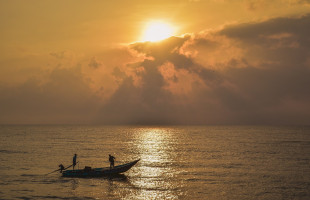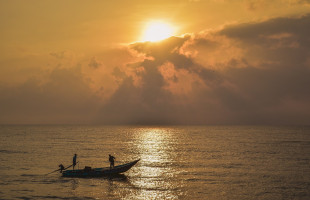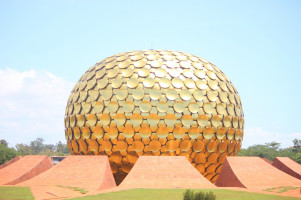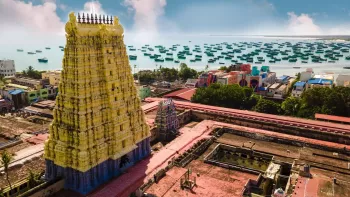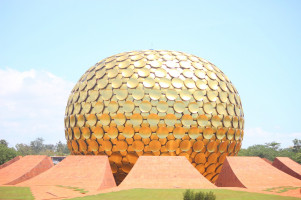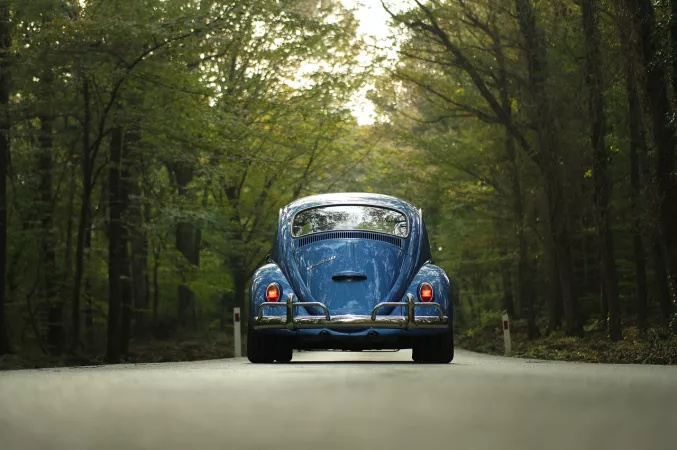
Pondicherry Museum Travel Guide
Pondicherry Museum, located in the union territory of Puducherry, India, is a treasure trove of history and culture. This coastal town was a French colonial settlement until 1954, and its influence can still be seen in the architecture and way of life. The town is known for its serene beaches, spiritual atmosphere, and vibrant heritage. Pondicherry Museum offers a glimpse into the rich past of the region, showcasing archaeological findings, sculptures, numismatic collections, and bronzes.Top Attractions in Pondicherry Museum
- Arikamedu Archaeological Site
- Paradise Beach
- Auroville
- Sri Aurobindo Ashram
- French War Memorial
Pondicherry Museum is Famous for
Its collection of rare artifacts and relics from the French colonial period.Top Attractions in Pondicherry Museum
- Exploring the French Quarter
- Indulging in French cuisine
- Visiting Auroville for a spiritual retreat
- Relaxing at the picturesque beaches
- Shopping for unique handicrafts
What's Great about Travelling to Pondicherry Museum?
- Experience a blend of French and Indian cultures
- Perfect destination for history buffs
- Relaxing beach vibes
- Great food options
- Peaceful and spiritual ambiance
What's Not So Great about Travelling to Pondicherry Museum?
- Limited nightlife options
- Language barrier for non-French speakers
- Can get crowded during peak tourist seasons
- Limited public transportation
- Humid weather during summers
Travel Tips for Pondicherry Museum
- Carry sunscreen and stay hydrated
- Respect the local culture and traditions
- Book accommodations in advance
- Try local cuisine and French bakeries
- Rent a bike for exploring the town
Important Pondicherry Museum trip information
- Ideal Duration: 3-4 days to explore the town and its attractions
- Best Time to Visit: October to March for pleasant weather
- Nearby Airports and Railway Stations: The nearest airport is in Chennai, and the closest railway station is Villupuram
Per Person
20,800
*EXCLUDING APPLICABLE TAXES Per Person
30,500
*EXCLUDING APPLICABLE TAXES Per Person
26,000
*EXCLUDING APPLICABLE TAXES Per Person
18,000
*EXCLUDING APPLICABLE TAXES Per Person
20,500
*EXCLUDING APPLICABLE TAXES 4.1 Ratings
( 56 Reviews )
( 56 Reviews )
Per Person
28,226
*EXCLUDING APPLICABLE TAXES 4.9 Ratings
( 200 Reviews )
( 200 Reviews )
FAQ's on Pondicherry Museum
Q1: What is the best time to visit Pondicherry Museum?
The best time to visit Pondicherry Museum is during the winter months from November to February when the weather is pleasant and ideal for exploring. This period also coincides with various cultural events and festivals in Pondicherry, adding to the charm of the visit. Tourist seasons are generally busiest during these months, so plan your trip well in advance.
Q2: Do I need a visa to travel to Pondicherry Museum?
Travelers to Pondicherry Museum who hold a valid Indian visa do not need a separate visa to visit as it is a part of India. However, if you are an international traveler, you will need an Indian visa to enter the country. Ensure your passport has a minimum of six months validity from the date of entry.
Q3: What are the must-visit attractions in Pondicherry Museum?
Pondicherry Museum is home to a rich collection of archaeological findings, sculptures, handicrafts, and artifacts that showcase the region's history and heritage. Must-visit attractions include the French War Memorial, Auroville, Promenade Beach, Aurobindo Ashram, and the Botanical Gardens. These places offer a glimpse into the diverse cultural and natural beauty of Pondicherry.
Q4: Is Pondicherry Museum a safe place to travel?
Pondicherry Museum is generally a safe destination for travelers. However, like any other place, it is advisable to take standard precautions such as safeguarding your belongings, avoiding isolated areas at night, and being aware of your surroundings. It's recommended to consult local authorities or your accommodation for any specific safety concerns.
Q5: What is the local currency in Pondicherry Museum and can I use credit cards?
The local currency in Pondicherry Museum is the Indian Rupee (INR). While credit cards are accepted at many hotels, restaurants, and larger stores, it's advisable to carry some cash for smaller establishments and local markets. ATMs are also widely available in Pondicherry for convenient access to cash.
Q6: What is the local cuisine like in Pondicherry Museum?
Pondicherry Museum offers a mix of French, South Indian, and international cuisines due to its diverse cultural influences. Some popular dishes include seafood curries, French pastries, dosas, and traditional Tamil cuisine. Visitors can enjoy a culinary journey through the numerous cafes, restaurants, and street food stalls in Pondicherry. Vegetarian and vegan options are also widely available.
Q7: What transportation options are available in Pondicherry Museum?
Transportation options in Pondicherry Museum include local buses, auto-rickshaws, taxis, and rental bikes or scooters for convenient travel within the city. Walking and cycling are popular ways to explore the town's quaint streets and vibrant neighborhoods. Additionally, guided tours and private car services are available for longer journeys or sightseeing excursions.
Q8: Are there any cultural norms or etiquette I should be aware of when visiting Pondicherry Museum?
When visiting Pondicherry Museum, it's important to respect the local customs and traditions. Dress modestly when visiting religious sites, seek permission before taking photographs of locals, and be mindful of public displays of affection. Greeting people with a "Namaste" or "Vanakkam" is appreciated, and it's customary to remove your footwear before entering homes or temples. Embracing the local culture adds to the enriching experience of exploring Pondicherry.
Q9: I am a travel agent. How can I buy travel leads of Pondicherry Museum?
Register yourself as a travel agent at agents.tripclap.com and then you can buy travel leads to Pondicherry Museum once your account is approved. For more details contact our support team at +91-8069186564 or support@tripclap.com
